By: Libby Sobic
National School Choice Week is an opportunity to celebrate innovative schools that are striving to provide high-quality academics for each of their students. And The Lincoln Academy, a public charter school in Beloit, is doing just that.
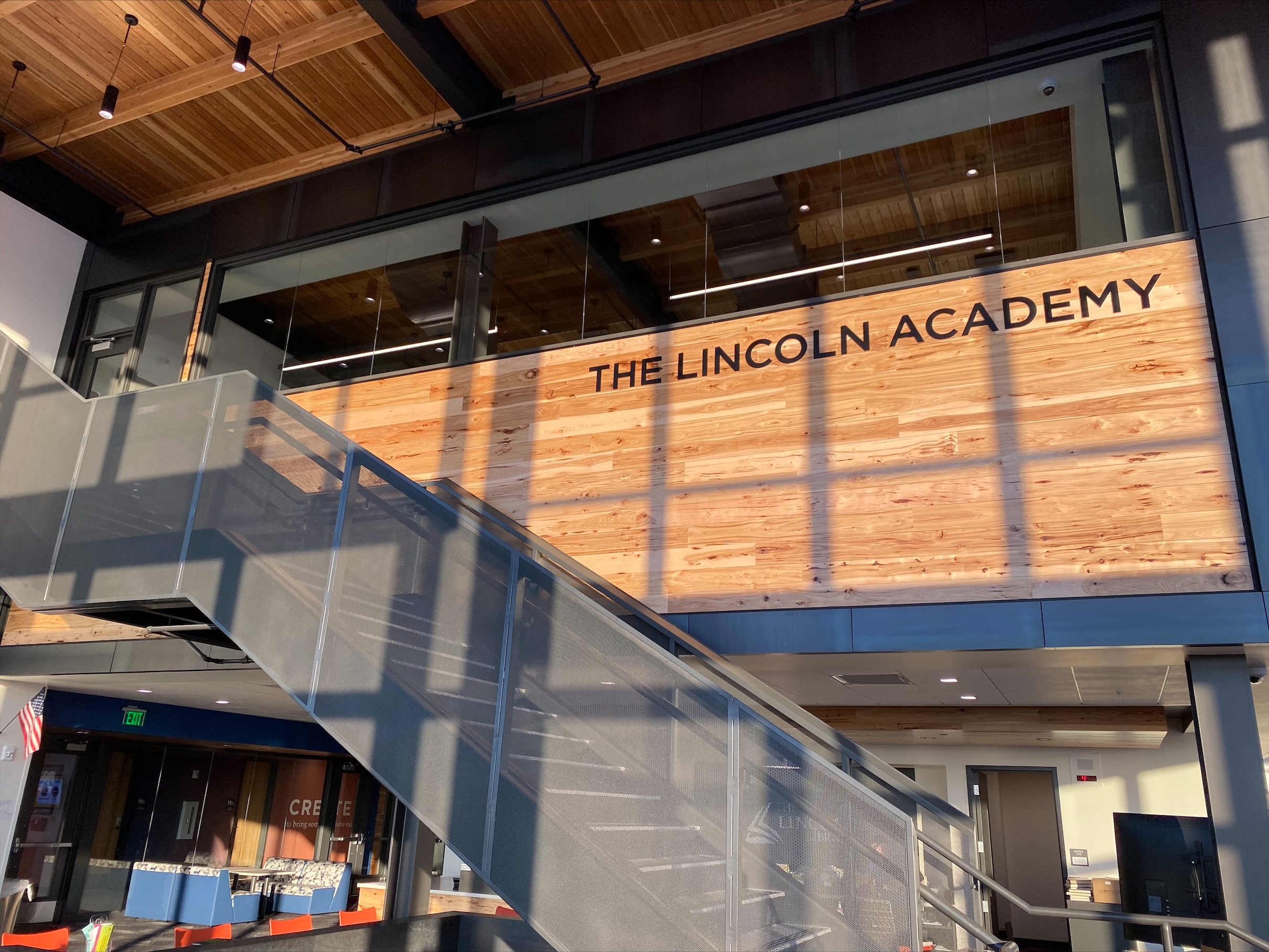
Inside The Lincoln Academy.
Only in its first year, The Lincoln Academy is educating over 400 students grades 4K through 2 and 6 through 9. Within the next four years, the school will have over 700 students in grades 4K through 12. Dr. Kristi Cole, the Chief Education Officer, believes that they will reach their enrollment goal over the next four years. “The Lincoln Academy is a response to the Beloit community. After dozens of community discussions with parents, students and community leaders, it was clear that a high-quality school focused on academic rigor, character development and career exploration was desired for this community.”
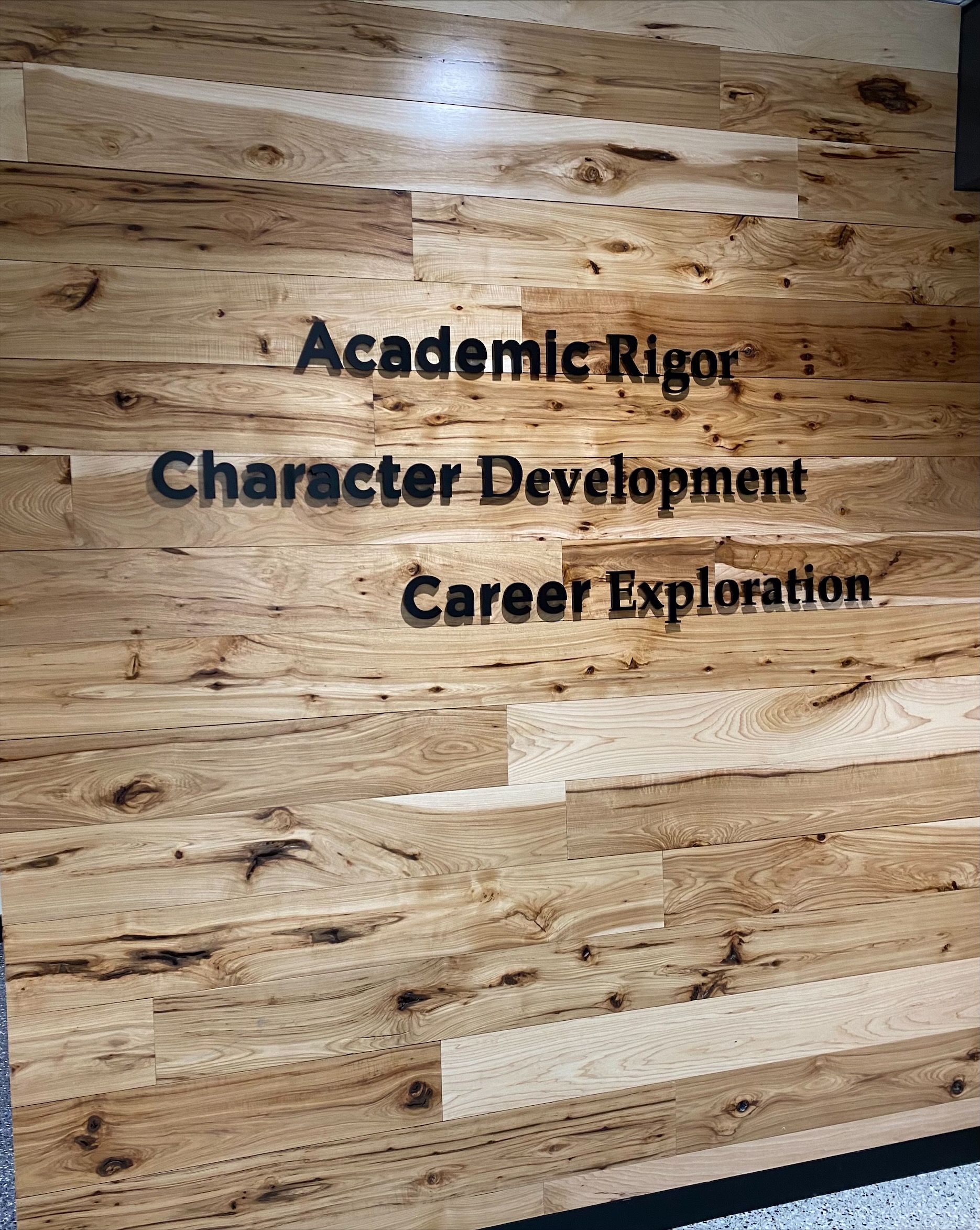
A wall at the Lincoln Academy displays their core values.
The Beloit School District has continually been rated as “meets few expectations” on the state report card. Student proficiency on the state’s Forward exams was less than 20% in English Language Arts and the average ACT score is 14.6 out of 36. Parents and students were frustrated by the lack of educational options in the community. The Lincoln Academy leadership team took the feedback from the community seriously.
From the very beginning, the school has been built around the concept that all children can learn and achieve, especially when children are first. This commitment to student success is reflected throughout the school, even in the building itself.
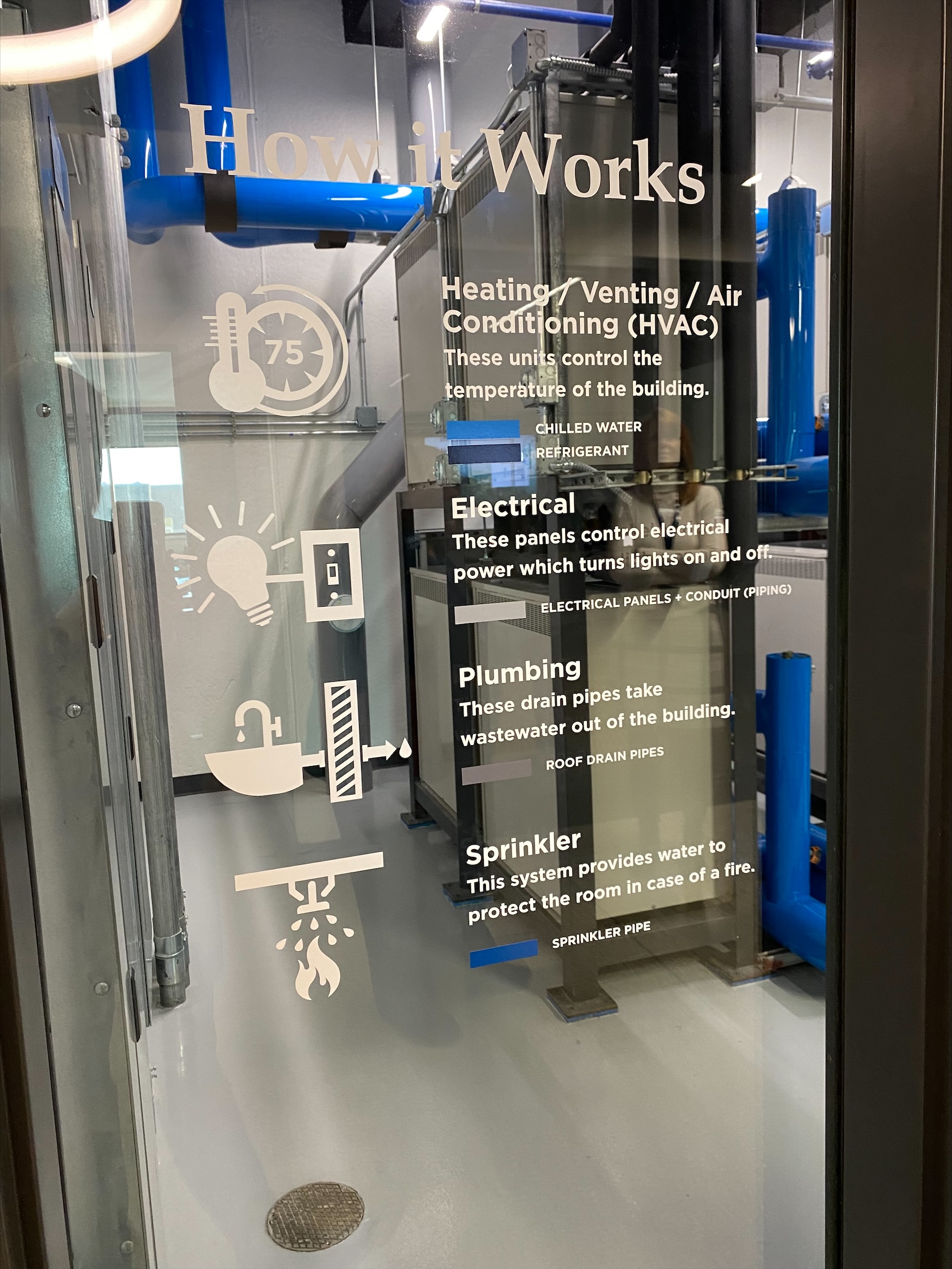 For instance, the building has many windows so every classroom and hallway is flooded with natural sunlight. This design was a response to research about the effect that light and sound have on childhood learning. Similarly, the classrooms are designed to increase interaction with an emphasis on small-group working stations and collaboration between teachers and classes. Even the building’s heating and cooling system, electrical and water systems can be viewed by scholars to understand what goes into their school building.
For instance, the building has many windows so every classroom and hallway is flooded with natural sunlight. This design was a response to research about the effect that light and sound have on childhood learning. Similarly, the classrooms are designed to increase interaction with an emphasis on small-group working stations and collaboration between teachers and classes. Even the building’s heating and cooling system, electrical and water systems can be viewed by scholars to understand what goes into their school building.
This intentionality also applies to the education opportunities provided to The Lincoln Academy scholars. The academics are structured to provide children with choice-filled lives, whether that be pursuing a two- or four-year degree, going into the workforce or the military. This is achieved primarily through something called an ILP, an individual learning plan that encourages scholars to think about their long-term goals and how academics and experiences can help them achieve that.
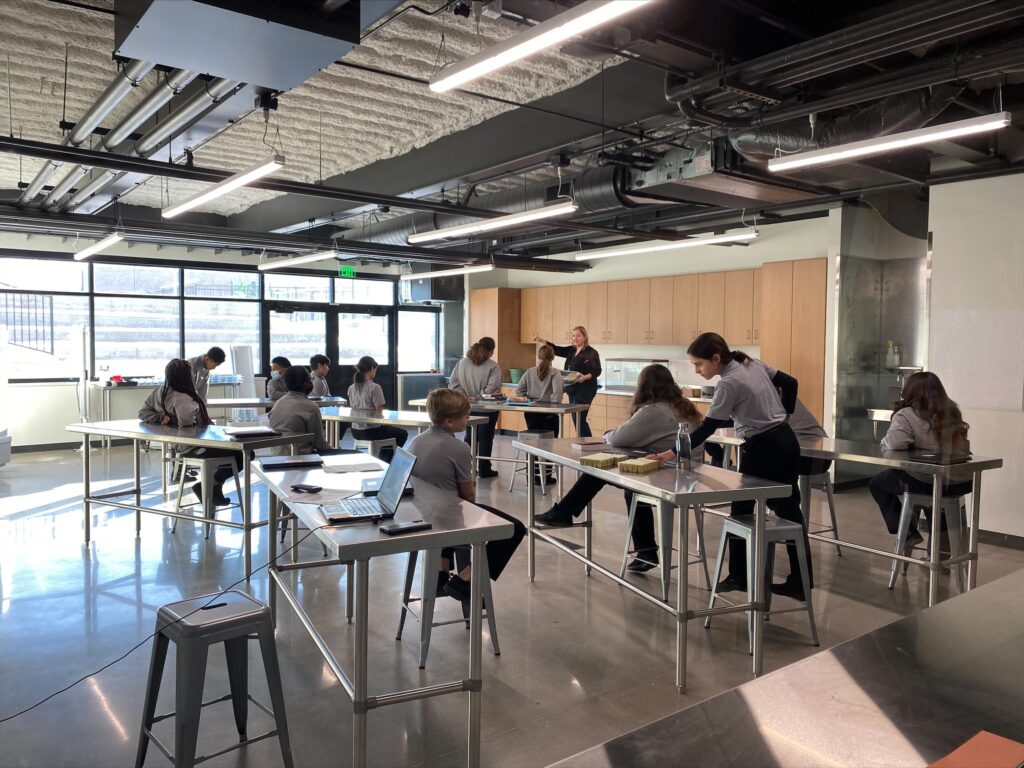
Students working in one of The Lincoln Academy’s labs.
Middle and high-school scholars use their ILPs to engage in their academic decisions. This includes presenting the ILP to a panel, building a portfolio of work that demonstrates both the scholar’s growth and achievements, and empowering scholars to make decisions regarding the type of classes they take. School staff are active participants in helping each scholar build their portfolio of work and parents must sign off on the scholars’ plans.
The engagement between scholars, their families and the school creates the expectation that every child can succeed. The Lincoln Academy serves all students as a public charter school and the school is a reflection of their community in Beloit. Around 11% of their scholars have special education needs, more than 14% are English Language Learners, 38% are Hispanic, 24% are Black/Two Races, 38% are White and 56% are low-income. The Lincoln Academy addresses individual scholar’s academic needs by providing both individual support and extended learning time called “What I Need” (WIN) so that each scholar has small-group instruction to address any learning gaps.
In addition to the core academics, The Lincoln Academy requires every middle and high-schooler to participate in an exploratory class each quarter. These exploratory classes provide them with opportunities to build new skills, learn about different careers and connect their academics with a future career. This quarter, exploratory classes include labs in agricultural sciences, food sciences, construction, culinary, music composition, coding, robotics, medical science, welding, engineering, CNC, ceramics and stained glass, yoga and STEM innovation.
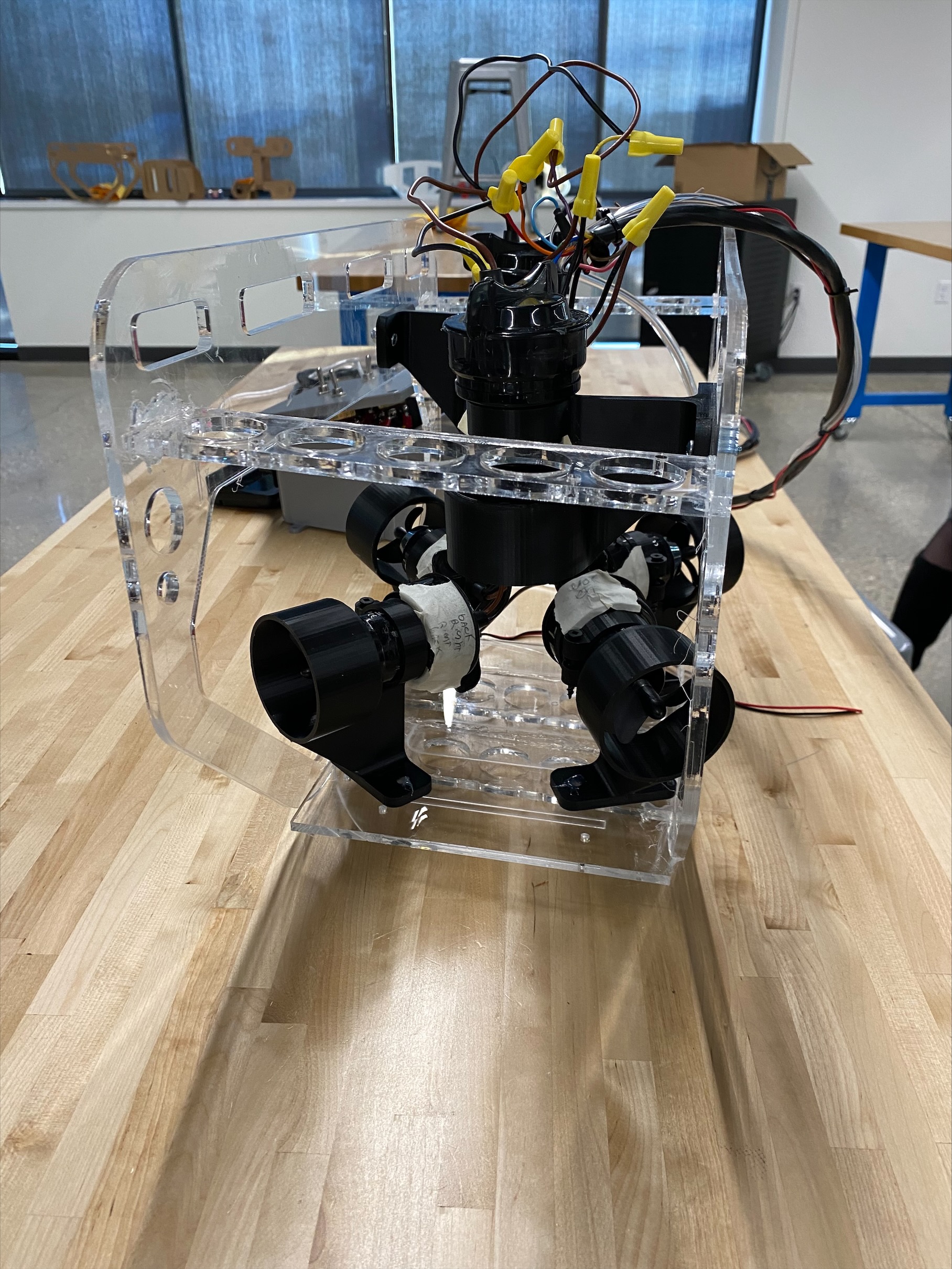
An underwater robot built by 6-9th grade students in one of the academy labs.
These classes are a collaboration between the school and the community. Several businesses donated the materials for scholars to learn in the exploratory labs. “When we share our vision for the school and our commitment to career exploration, we have been fortunate to receive generous support from the business community,” Dr. Cole said. “These community partnerships are critical for the success of our school and our scholars.”
In these exploratory labs, scholars are learning how to design and build robots, build a staircase and the prototype of a building, code a computer program, make bruschetta and mandarin chicken, use a 3-D printer and can even achieve their CPR and AED certifications. These exploratory classes are designed to encourage curiosity and career development before high-school graduation. The vision for The Lincoln Academy includes expanding certification opportunities so scholars can graduate with both a high-school diploma and certifications.
With only its first school year underway, The Lincoln Academy is certainly a school to watch. Their innovative model and commitment to a child-centered mission will spur positive change in their scholar’s lives and the community of Beloit.
Sobic is director and legal counsel for education policy at the Wisconsin Institute for Law & Liberty.